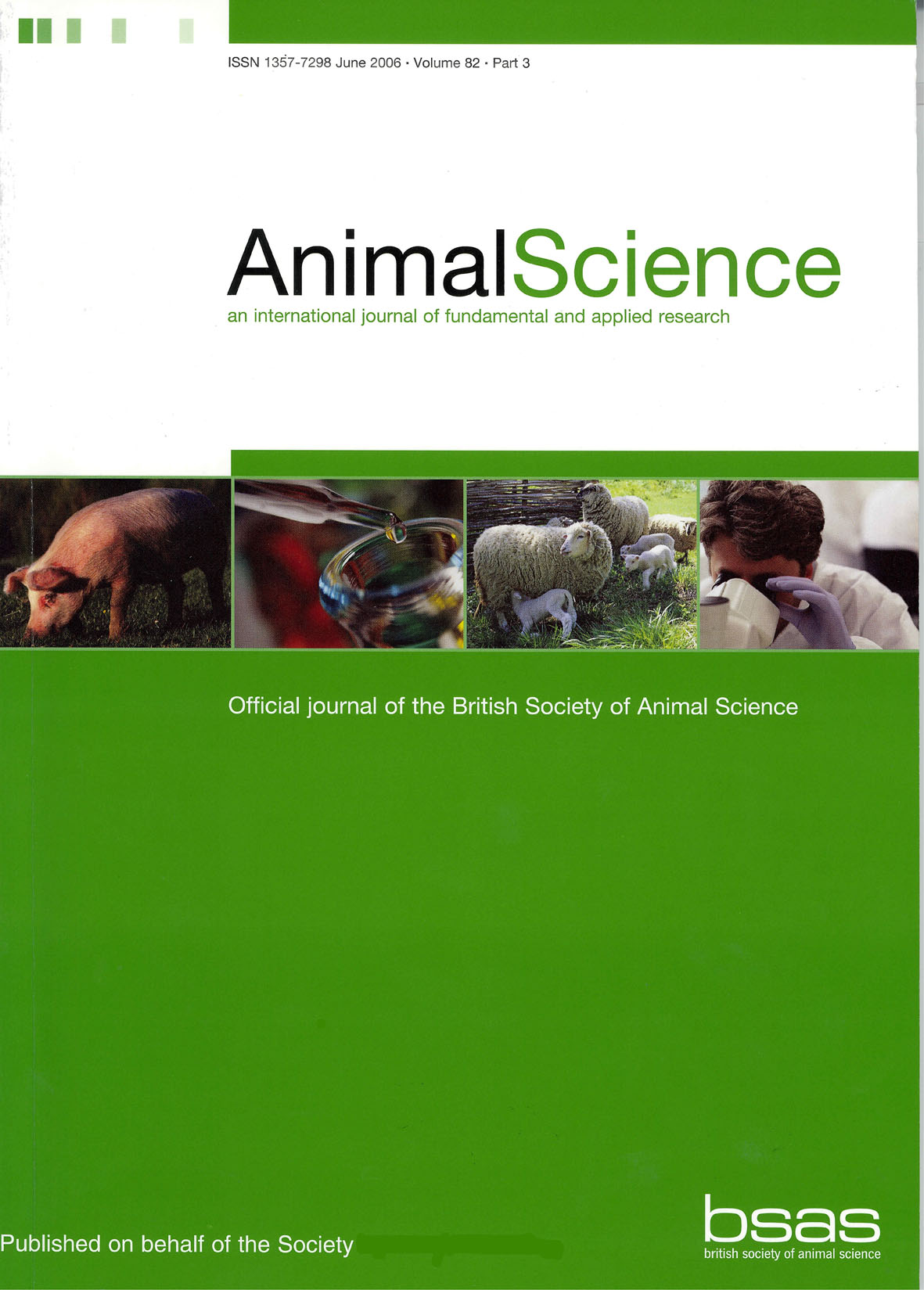Article contents
Estimation of variance of maternal lineage effects at the Langhill dairy herd
Published online by Cambridge University Press: 18 August 2016
Abstract
Evidence to support the existence of a maternal lineage variance component for production and food intake traits at the Langhill experimental dairy herd was investigated. Maternal pedigree records of the herd were traced back to the points of cytoplasmic origin using herd book records. Cytoplasmic origin was defined as the earliest maternal ancestor of a cow and used to assign cows to maternal lineages. This was either a grade-up cow or an ancestor traced back to 1920. The tracing resulted in the cows being assigned to 56 maternal lineages, ranging in size from one to 72 cows. A total of 1118 records of 517 cows, all with a first lactation record, were used in the analysis. Traits analysed were daily milk, fat and protein yield, fat %, protein %, food dry-matter intake, net energy of milk production, a measure of milk production efficiency, average condition, and calving condition, all averaged over the first 26 weeks of lactation. The analysis was performed using a residual maximum likelihood animal model with and without a random component for maternal lineage. Possible bias, due to the fact that the sires were a select sample from the population, was also examined. No significant effect was found in the analysis of the full data set that could be assigned to maternal lineage. Fat yield was the only trait to show a variance component approaching a 5% significance level with a magnitude of 4% of phenotypic variance. However, when maternal lineages of at least five cows were considered, a significant 4% maternal lineage component of phenotypic variance was found for fat yield. The power of the analysis to detect a variance component of less than 4% was shown to be poor. No evidence was found for a maternal lineage component of food intake traits or condition score. Treating sire as a fixed effect or regressing data on sire EBV made little difference to the maternal lineage component.
- Type
- Research Article
- Information
- Copyright
- Copyright © British Society of Animal Science 1999
References
- 7
- Cited by


